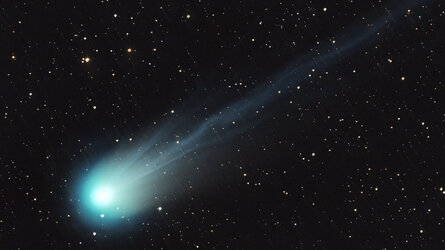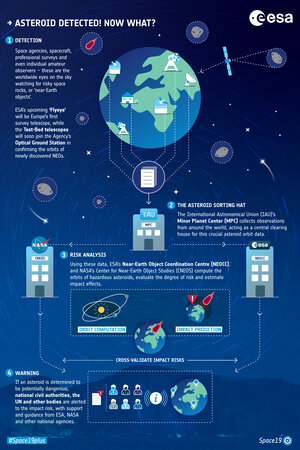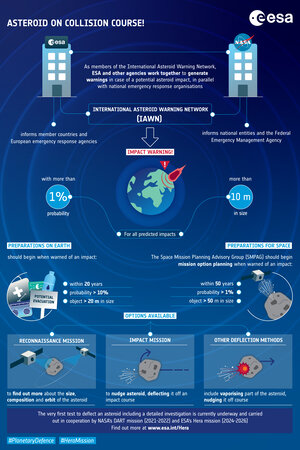

Asteroid experts catch final glimpse of Solar Orbiter
Last night, ESA’s Planetary Defence team observed the rare moment in which an object escaped our planet’s gravity, in contrast to their normal objects of study – potentially hazardous rocks that could strike it.
At 19:15 UTC (20:15 CET) on 10 February, just over 20 hours after the launch of Solar Orbiter, the team took the opportunity to capture this sequence of observations using the Schmidt telescope at Calar Alto, Spain.
The clip covers a timespan of about 10 minutes, and is made up of 36 observations each 10 seconds long.
At the time it was taken, Solar Orbiter was roughly 310 000 km away from Earth and travelling to Venus for its first gravitational assist around Christmas day this year. Still within the Moon’s orbit - just - it was already a faint object in the sky, shining as bright as a magnitude 19.5 star (250 000 times fainter than we can see with the naked eye).
The Near-Earth Object Coordination Centre, based at ESA’s Centre for Earth Observation in Italy, coordinates and contributes to the observation of small Solar System bodies, in order to evaluate and monitor the risk they pose.
These observations of Solar Orbiter were made based on a proposal by Gerhard Holtkamp, a keen amateur astronomer who works on site guiding public tours of ESA mission control.
Sign up for their monthly newsletter, here, for all latest.





